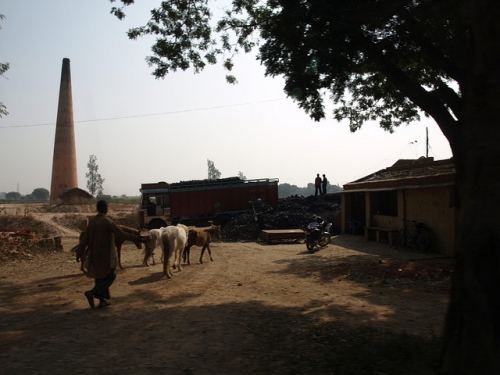The road to Lumbini, Nepal—the birthplace of the Buddha—is littered with industry. Cement companies, brick kilns, steel mills, and a paper mill all manufacture goods alongside the Bhairahawa-Lumbini highway, a stretch of land that falls within the Lumbini Protected Zone—an area of a 15km radius around the UNESCO World Heritage Site, meant to be industry-free. Though rules barring industry in the LPZ have not been enforced before now, Nepal’s Prime Minister, Madhav Kumar Nepal, said Sunday that the government will not license new industries and will begin to crackdown on existing ones.
From Republica:
The PM also objected to the continuation of licensing new industries in the area and warned officials of strong action if they are found issuing permits, violating the government decision.
“We can’t compromise on any activities that deteriorate the beauty and serenity of Lumbini area. We will take strong action against officials who give permission to open new industries there,” the PM added.
Moreover, Nepal also said that the government was mulling over relocating industries that are already under operation in the vicinity of Lumbini.
“We are in favor of relocating industries that are already under operation there by establishing an industrial corridor so that the birthplace of Lord Buddha can be protected from environmental hazards,” Nepal added.

Last October, The Kathmandu Post published an op-ed piece calling for tighter restrictions on industries near Lumbini.
The inescapable conclusion is that this concentration of heavy industries is transforming the character of LPZ from a world-class tourist, archaeological and pilgrim destination nestled in an agrarian community to an increasingly polluted industrial zone. This situation must be turned around before it becomes an environmental, public health and public safety catastrophe.
Thank you for subscribing to Tricycle! As a nonprofit, we depend on readers like you to keep Buddhist teachings and practices widely available.